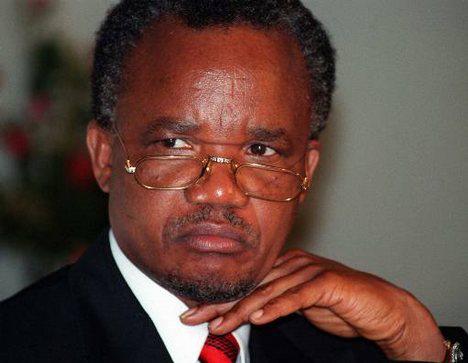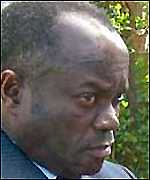
Zambia’s mystery bombs - LUSAKA iS ROCKED BY BOMBINGS
Zambia's capital was rudely wakened on February 28th 1999 by a string of explosions that severed the capital's water supply and damaged its power lines.
Zambia's capital was rudely wakened on February 28th 1999 by a string of explosions that severed the capital's water supply and damaged its power lines.

An Angolan security guard was killed and another man wounded when a bomb detonated at the Angolan embassy at about 11am. Bombs also exploded at the Anerican International School and headquarters of ZESCO
No one claimed responsibility for the 16 bombs that were eventually found, nor for a series of bomb scares at shops and public buildings over the next few days.
The Zambian Govt deployed police and troops in and around the capital city of three million people.
''We are treating this as a security crisis and all our security and armed forces are on full alert,'' then Legal Affairs Minister Vincent Malambo reporters
''We are treating this as a security crisis and all our security and armed forces are on full alert,'' then Legal Affairs Minister Vincent Malambo reporters
Zambian President Frederick Chiluba cut short a visit to Rwanda and returned home to go straight into security briefings. After returning to Zambia, he was earlier quoted as saying: “The perpetrators and their sponsors should not go uncondemned.” 

Zambia’s Minister of Information and chief government spokesman Newstead Zimba, in a nationwide radio and television broadcast Sunday evening, accused what he described as “managers of death”, of wanting to destabilise the Southern African nation.
The bombs destroyed electricity pylons and the main water supply was blown up, causing severe power cuts and water shortages. By midnight Sunday, most residential areas were still without water and electricity.
In the past few weeks leading up to the bombings, tensions had run high following claims by Angola that Zambia was allowing arm shipments destined for the UNITA movement of Jonas Savimbi to pass through its territory. Zambia denied the charge. 

So obviously Angola was suspected of the bombings, and local newspapers even speculated about the possibility of war. The enmity between the two governments was real enough.
The Angolans accused senior members of President Frederick Chiluba's cabinet and his family of peddling arms to the Angolan UNITA rebels and were desperate to cut the supply route.
Zambia's denials of arms-trafficking were vague at best. Vice-President Christon Tembo, one of the bigwigs fingered by Angola, said cryptically that his accusers were acting on “outdated intelligence”. 

The Zambians had legitimate reasons for sending weapons to the Angolan border, where their soldiers patrol. However, It would have been easy to slip a few across to the rebels—who paid handsomely for hardware, in diamonds.
To this day, there has been no claim of responsibility for the attacks. Malambo pointed a finger at an external enemy but declined to give details. Regional security analysts were baffled by the explosions.
The orchestrators of the bombing have never been publicly identified and it is still remain a mystery to this day.
• • •
Missing some Tweet in this thread? You can try to
force a refresh





